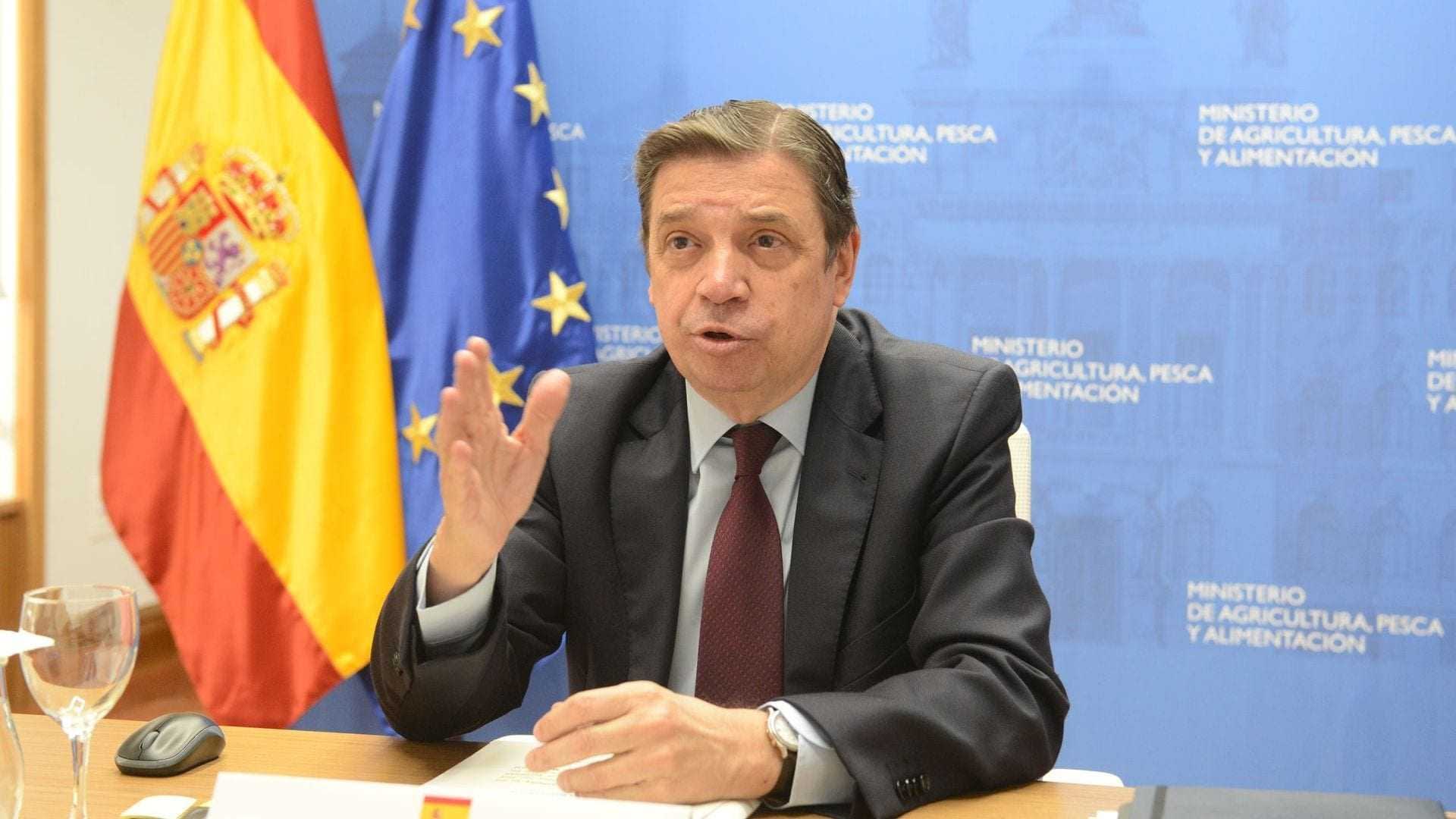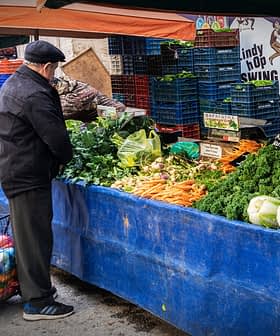It has been a busy week for Luis Planas.
The Spanish Minister of Agriculture, Fisheries and Food has been in negotiations with the European Union over the proposed budget for the Common Agricultural Policy (CAP) and also announced a package of ten measures to shore up the country’s faltering olive oil sector.
Planas said that the negotiations over funding the CAP had begun well, but more needed to be done in terms of direct aid for the olive oil and other agricultural sectors.
The industry does not agree with a market intervention that implies that price formation is not carried out through supply and demand. The industry wants freedom on the market.
“More measures are required to deal with the critical situations faced by several agricultural sectors, such as the olive oil sector,” Planas said in the latest meeting with his European counterparts.
He emphasized how Covid-19 and American tariffs on some Spanish olive oil imports are taking their toll on the world’s largest olive oil producer.
See Also:Olive Oil and the CAPPressure has also been building at home, with olive oil and table olive producers demanding the Spanish government lobby Brussels on their behalf and retaliate against the U.S. tariffs.
“This is a political, discriminatory and unfair measure,” said Rafael Pico Lapuente, the executive director of Asoliva, the Spanish Association of Olive Oil Exporting, Industry and Commerce.
“I think that in the face of political decisions the response must be political from the E.U. and from Spain, and this can only be achieved through negotiations at the highest level,” he told Olive Oil Times.
Planas’ ongoing negotiations with the E.U. are also essential to several parts of the package of measures he presented, which were announced right after a series of meetings held between the minister and key players in the Spanish olive oil sector.
The proposal was met with both interest and skepticism by olive oil producers and exporters. While the measures tackle many of the challenges facing the sector, some believe the goals are not ambitious enough or are at least too dependent on the negotiations with the E.U.
Included in the measures is the option for producers and cooperatives to store up to 10 percent of their total olive oil harvest during crop years with particularly high yields. The ministry argues that this would help stabilize prices and prevent precipitous drops.
The package also includes provisions to emphasize quality, with measures to promote early harvest olive oils and differentiate the labels of traditionally-produced oils from those made using high density and super-high density methods.
Measures aimed at helping small, traditional olive oil farms to restructure their business and become more profitable are also included in the package. Part of how the ministry wants to do this is through a campaign emphasizing the health benefits associated with high-quality extra virgin olive oil.
However, Lapuente warned that the government’s measures have not gone far enough.
“In my opinion, it is very difficult to get the consumer to value traditionally-produced olive oil,” Lapuente said. “I believe that the consumer will continue to use the quality and the price of the product in order to choose which oil to buy.”
“However, in order to stimulate the consumption of traditionally-produced olive oil, we would need specific promotional measures,” he added.

Interaceituna and Asemesa, two of the county’s table olive associations, have also expressed skepticism at the plan. Both associations have said that they hoped for more funds for innovation.
José Ignacio Montaño, Asemesa’s president, stressed the need to invest in providing growers with better access to water and in new means for mechanized harvesting.
“If we go ahead with the handpicking, given the Spanish labor and social costs, within five years we will be earning a tenth of our current profits,” he said.
The measures put forward by Planas also propose new means for improving the traceability of olive oil and enforcement for the newly-legislated olive oil quality standards.
The idea is to improve quality through inspection and controlling the movement of olive oils in Spain. The new measures ask companies to physically separate the different activities within the industry – including refineries, packers, other vegetable oil production lines and extractors – so they can be monitored more thoroughly.
Lapuente and others, however, believe this will make Spanish olive oil producers less competitive on the global market.
“This will cause enormous economic investments that will make the export sector less competitive against those countries that do not undergo this mandatory regulation,” Lapuente said. “The cost of production for the Spanish exporters will be remarkably higher, while the needed controls and inspections could be executed without burdening the production cost.”
However, many small farmers believe that in-depth investigations are needed to ensure that all operators, including the biggest players on the market, are acting lawfully.
At the core of the many discussions that led to the plan are the persistently – and for some illogically – low olive oil prices plaguing the country.
While Spanish law says that sale contracts must provide producers with a price compatible with their production expenses, some experts do not believe that this is currently the case. These experts said that in difficult times this regulation actually may translate into unsold olive oil, especially for traditional olive growers, many of whom are further impacted by their higher production costs.
Moreover, not everyone agrees that the aforementioned self-regulation measures, meant to help stabilize prices, would be the right path forward.
“The industry does not agree with a market intervention that implies that price formation is not carried out through supply and demand,” Lapuente said. “The industry wants freedom on the market. However, we are waiting for the Minister to inform us of the full details of the proposal before taking a decision on whether to support it or reject it.”
While the discussions are ongoing, many of the Ministry of Agriculture’s future steps will depend on the consensus within the E.U. for actions and funds aimed at the development of the olive oil sector.









